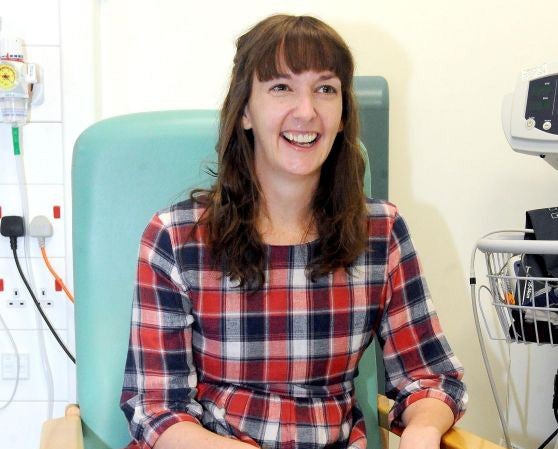Ebola nurse Pauline Cafferkey in 'serious condition'
Greater Glasgow health board confirmed the Ebola virus was still present in her blood

A Scottish nurse who contracted Ebola in Sierra Leone last year is in a “serious condition” after being readmitted to an isolation unit in London.
NHS Greater Glasgow and Clyde confirmed to the BBC the virus is still present in Pauline Cafferkey's body after being left over from the original infection.
Ebola can stay buried in survivors' tissue, meaning its effects can continue long after people have apparently recovered, experts have said.
People who have come into close contact with her are being monitored as a precaution, but are not thought to be at risk.
Ms Cafferkey spent almost a month in the isolation unit at the Royal Free Hospital in London after contracting the virus in December 2014.
She had been volunteering with Save the Children in Sierra Leone during the outbreak and returned to Heathrow in December last year when she began exhibiting symptoms.
For a time she was in a critical condition after her health "gradually deteriorated" in hospital.
She was later declared free of Ebola and discharged from hospital in January this year, declaring she was "happy to be alive".
Ms Cafferkey had visited 10 Downing Street 10 days ago to meet the Prime Minister’s wife, Samantha Cameron, to receive her Pride of Britain award alongside other nurses and healthcare workers who contracted the illness while volunteering in West Africa.
The news comes as three countries at the centre of the outbreak - Sierra Leone, Guinea and Liberia - recorded their first week without a new case of the disease being diagnosed since the outbreak was declared in March 2014.
The three countries will have to wait 42 days with no new cases reported before they can be officially declared "Ebola free".
According to the World Health Organisation, more than 11,000 people are estimated to have died in the outbreak.
Subscribe to Independent Premium to bookmark this article
Want to bookmark your favourite articles and stories to read or reference later? Start your Independent Premium subscription today.

Join our commenting forum
Join thought-provoking conversations, follow other Independent readers and see their replies